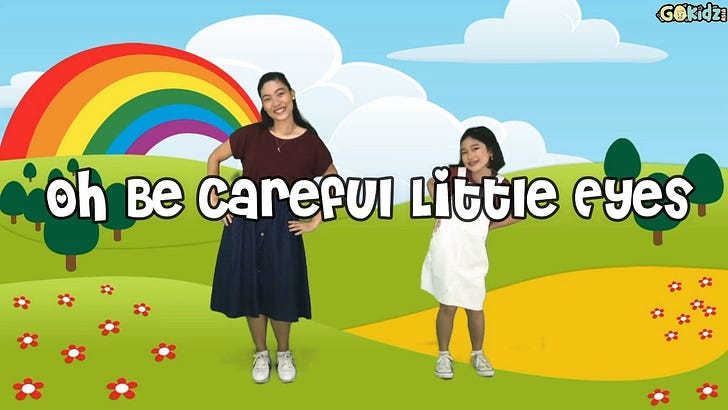Thinking the Texts by John Fairless
The long-awaited climax to the Genesis story opens today with these words: “Then Joseph could no longer control himself.” I wonder how much more love, compassion, forgiveness, and focus on the goodness of God might overflow in our churches if we gave up more control of ourselves?
Isaiah has a word: God’s salvation is on the way; it will come. Until it does, we have a part to play. “Maintain justice, and do what is right….” We are to be maintenance men (and women) when it comes to God’s justice in the world. Awesome responsibility!
I know a whole lots of folks, many of them with really good hearts, who can quote Romans (in 10: 9-10) by heart and who are convinced, as one preacher of my youth They must have forgotten to read further and hear Paul answer his own question in today’s passage: “I ask, then, has God rejected his people? By no means!” ‘Nuff said.
Jesus says in Matthew, “Don’t you guys get it yet? It’s not that stuff on the outside, it’s what’s on the inside that is causing you the most trouble!” Or, as I learned in Primary Sunday School:
And Just for Fun
Sermon by Delmer Chilton
A minister friend of mine grew up in the then small town of Newnan, Georgia. His grandfather lived nearby and owned a chicken farm. In the mid-1960s, industry started moving into the area and the small farms were turned into subdivisions. The American Can Company built a factory nearby and soon a lot of people from the Midwest were transferred down to Georgia to run the factory. Suddenly, for the first time, my friend had a lot of neighbors from Wisconsin. They were not entirely like the people my friend and his family were used to. For example, they called a “cookout” - a "barbecue" (every good southerner knows "barbecue" refers to pork - or in Texas beef - cooked all night over hickory coals), and they drank beer right outside in their front yards in front of God and everybody. They walked up and down the road for exercise. And, they talked funny.
One day one of the new couples came to Grandpa’s barn to buy eggs, just like almost everybody else in Newnan. But this couple had walked over instead of driving and they exchanged only a few brief words of pleasant conversation instead of chatting for half an hour like locals would have. As they walked away hand-in-hand with their eggs, Grandpa looked after them; then he shook his head and said to his grandson, “They’re nice enough folks, I reckon, but they’re just not our kind of people.”
"Not our kind of people," it's actually a nonsensical thing to say. And here's why: we humans are, actually, genetically, all the same species. African, Asian, European, Native American; short, tall, thin, heavy; blue, green, or brown eyes; black hair, red hair, brown hair, blond hair; dark skin or pink skin or something in between, Red and Yellow, Black and White, we all possess almost identical genetic material. None of the surface differences matter – we are all the same kind of people. Genetically, here is no such thing as people who are not "our kind of people." And, culturally, we are also much alike in ways that have little to do with our DNA. The people of China, or Somalia, or Haiti, or Iraq, or North Korea or Russia, or New York or Georgia, or North Carolina; we all love our families, we are all concerned with the price of food and the cost of housing, we all ponder the meaning of life and the future of our children. Yes, we are all very much alike and yet, we so often live estranged from one another, not just from others from across the world – but also others from across town or across the street.
Not too long ago, I read a piece in the “sound off” section of a southern newspaper identifying their state as a “red” state and advising that people moving there from New York or California or one of the other “blue” states should just keep their mouths shut. At about the same time, I was leading a worship workshop in New Haven CT. I heard a radio talk show program from Boston where callers were talking about how the people in the “red” states should just stay away from New England. And so it goes.
As the world becomes more and more fragmented, the church finds itself more and more divided between Protestants and Catholics and Orthodox, between liberals and conservatives, between those who ordain women and gay people and those who don’t, those who baptize babies and those who don’t, those who have THE TRUTH, and those who, apparently, don’t, etc. etc. And all of this not only saddens God’s heart; it is also, quite literally, against the will and plan of God for the world.
In Matthew 15, Jesus had an encounter with a non-Jewish woman that turns on the question of the exact range, the ultimate wideness, of God’s mercy. After Jesus makes remarks about being sent only to the children of Israel, quoting a dismissive proverb about how it’s not right to give the children’s food to the dogs, the Canaanite woman turns the insult around and gently reminds him, and us, that even the dogs get to eat the crumbs from the children’s table. Over the years, people have argued a lot about what to make of Jesus' remark about dogs. Did he mean it, and did the woman teach Jesus something about inclusivity? Was Jesus using her as an object lesson, a lived-out parable, to teach his disciples a lesson they needed to learn?I don't know for sure – but I do know that worrying over that question can keep us from paying attention to what really matters here.
Matthew wants us to understand that there are no limits on God's grace, there are no unnatural boundary lines between us, all people are God's kind of people. Inclusivity is not a minor theme in scriptures; it is at the very heart of the story of God’s love for all God’s people. German theologian Jurgen Moltmann once wrote, “The nearer we come to Christ, the nearer we come to each other.” In a world anxiously searching for peace, in a world where people desperately need to learn how to trust and help one another; God is still calling the church to be an example of what God wants the world to be – a community where all people are our kind of people.
When I was in elementary school, we loved to play a game called “Red Rover.” We divided the group in half and formed two lines facing each other about twenty or thirty feet apart. The captains took turns yelling out, “Red Rover, Red Rover - Send Willy right over.” Willy would get up a head of steam and run at the line opposite him. The people in the line would hold hands tightly, bracing for impact. If Willy broke through the line, he could claim a prisoner to take back to the other line with him. If he did not, he had to stay and join that line. There was a girl who liked me. She passed me notes in class, and looked softly at me on the bus, sighing and holding her chest. One day the captain called out, “Red Rover, Red Rover, send Delmer right over.” This was a popular thing to do because seldom was I able to break the line. I backed up a few steps and ran as hard as I could toward the required place, which was where the girl who liked me was holding tight to another kid’s hand. When I got there, I sliced through that line like a hot knife through butter, tumbling to the ground in surprise at my easy victory. The boy who had been holding my "girlfriend's" hand was screaming at her, “You cheated, you cheated. You let go. You let go!” And she smiled sweetly, “Yes I did, ‘cause I love him.” And I promptly died of embarrassment.
Today, the Spirit of God invites us to break away from the world's rules in the name of love. Today, the Spirit of God commands us to make no distinctions between "them" and "us," whoever "them" may be. Today, the Spirit of God reminds us that God CAN and DOES love all people; and we know this because, after all, God loves us.
Amen and amen.




